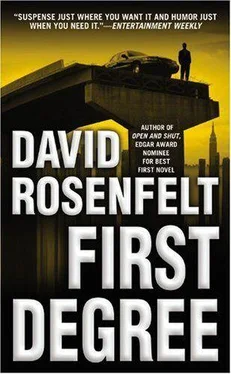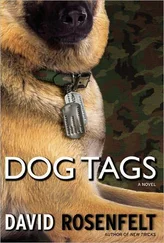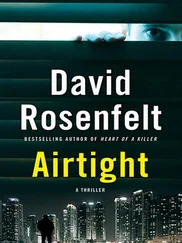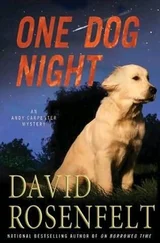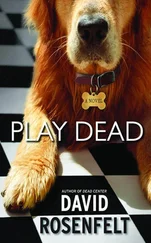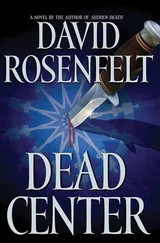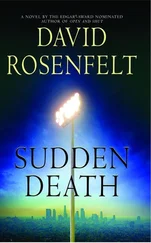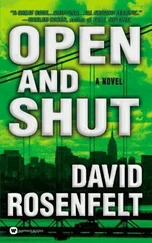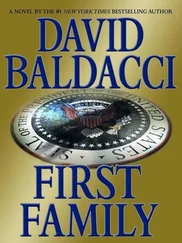David Rosenfelt - First degree
Здесь есть возможность читать онлайн «David Rosenfelt - First degree» весь текст электронной книги совершенно бесплатно (целиком полную версию без сокращений). В некоторых случаях можно слушать аудио, скачать через торрент в формате fb2 и присутствует краткое содержание. Жанр: Детективная фантастика, на английском языке. Описание произведения, (предисловие) а так же отзывы посетителей доступны на портале библиотеки ЛибКат.
- Название:First degree
- Автор:
- Жанр:
- Год:неизвестен
- ISBN:нет данных
- Рейтинг книги:4 / 5. Голосов: 1
-
Избранное:Добавить в избранное
- Отзывы:
-
Ваша оценка:
- 80
- 1
- 2
- 3
- 4
- 5
First degree: краткое содержание, описание и аннотация
Предлагаем к чтению аннотацию, описание, краткое содержание или предисловие (зависит от того, что написал сам автор книги «First degree»). Если вы не нашли необходимую информацию о книге — напишите в комментариях, мы постараемся отыскать её.
First degree — читать онлайн бесплатно полную книгу (весь текст) целиком
Ниже представлен текст книги, разбитый по страницам. Система сохранения места последней прочитанной страницы, позволяет с удобством читать онлайн бесплатно книгу «First degree», без необходимости каждый раз заново искать на чём Вы остановились. Поставьте закладку, и сможете в любой момент перейти на страницу, на которой закончили чтение.
Интервал:
Закладка:
"I've discovered that opposing counsel doesn't seem to believe in it. I've requested reports that have not been turned over."
Dylan looks mortally wounded. "Your Honor," he complains, "the request was made just yesterday."
I'm having none of this. "I'm sorry, Your Honor, but we are talking about the copying of reports. That takes minutes, not days. I would be happy to walk with Mr. Campbell to his office and do it myself. Secondly, the timing of the request is not important; it's not even necessary at all. The prosecution should be aware of their discovery obligations with or without a specific request. Documents should be copied and turned over as they are received, without editing."
The judge nods and issues the order. "The state will turn over copies of whatever reports it has in its possession by close of business today."
She slams her gavel, effectively adjourning the proceedings. The courtroom empties quickly, and with the press having dispersed, Dylan forgets to exchange parting pleasantries.
I arrange to meet with Oscar later to discuss the case in detail for the first time. I'm particularly interested in his whereabouts on the night of the murder. I'm hoping he was having dinner with the secretary of state or being interviewed by Ted Koppel on Nightline .
Laurie is waiting for me in the back of the courtroom, and Oscar doesn't take his eyes off her the entire time he is being led off. Those eyes are not ogling; they are hating and fearing.
Once Oscar is out of sight, I go back and meet Laurie.
"You pissed Dylan off," she points out.
I nod. "Had to happen sooner or later."
"This is sooner. Listen, Andy, I want to work on this case."
This surprises me. "You don't have to do that. I know how you feel about Oscar."
"That doesn't matter. I'm a professional and I have to act like it," she says.
I find myself thinking, "I'm not so sure this is a great idea." I find myself saying, "Great."
"We starting right now?" she asks.
"Nope. Tomorrow." I look at my watch. "I'm due back in high school in twenty minutes."
Paterson Eastside is the high school from which I graduated. The school's claim to fame is that it was the subject and setting of the movie Lean on Me , starring Morgan Freeman. It told the story of the then principal, Joe Clark, and his heavy-handed method of getting the chaotic inner-city school under control.
My high school career could best be described as undistinguished, at least in the things important to me: girls and sports. My sports mediocrity was the more painful of the two, because at least with girls I had the good sense to give up trying early on. In sports I had perseverance, a trait that is not all it's cracked up to be.
Eastside's football field, adjacent to the school, was actually placed on an old cemetery, after the graves had allegedly been moved. Thus the school had two nicknames, the Ghosts and the Undertakers. It was on that field that I suffered my greatest indignity. As I sat on the bench, the starters were out on the field making awful play after awful play. The coach turned to me and said, "Can you imagine how bad you are if you're playing behind them?"
But I've returned to Eastside today in triumph. I'm endowing the school with a yearly scholarship, given in the name of my father. An assembly has been called to commemorate the occasion, and the principal tells me that my recent media exposure has actually created some student interest in the event.
My speech is a combination of self-deprecating humor and sincere exhortation to the students to make their lives productive. I don't build myself up too much, because even though I'm a pretty good lawyer, the truth is that the only reason I'm standing here today is that my father died and left me a truckload of money.
When I mention my father's nonfinancial influence on me, I get a little choked up. It's been happening a lot lately. I've noticed that as I get older, I get more and more, sentimental. I also notice some other things as I age, like a couple of hairs growing on each of my ears. Now that I think about it, there could be a cause-and-effect relationship at work here. Maybe I should fund some medical research into studying the effect of ear hair on human emotional response.
The question-and-answer session afterward is surprisingly lively. Most of the students want to know about the Willie Miller case, though their interest seems centered on what it was like to visit Willie on death row.
The Garcia case is of less interest. Some of them know Oscar or know of him from the neighborhood, and to know Oscar is to be unconcerned about his fate.
But a decent round of applause sends me off, and I head down to the jail to meet with my client. He's agitated and somewhat scared; for some reason his appearance in court this morning provided a sense of reality to his situation that the arrest and incarceration did not.
Oscar is not the type you make small talk with, so I ask him if he has any questions about, what took place in court today.
"That guy Campbell, he seemed out to get me."
It wasn't a question, but it's close enough. "He wants to send you to prison for the rest of your life."
"Son of a bitch …"
"You've obviously met him before," I say. "Now, tell me everything you did the night of the murder, minute by minute, as best as you can remember. Don't leave out a thing, no matter how small or unimportant it might seem."
The sullen Oscar becomes even more so. "I hung out," he mutters.
"That's not quite the detail I need."
"Hey, what do you want me to say, man?" he asks, clearly annoyed with my persistence.
"I want you to tell me where you were that night. Because if you don't cooperate with me, I can tell you where you're going to spend every night for the rest of your life."
"I was doing business," he mutters.
"Where? In the park?"
"No."
It's my turn to get annoyed. "Dammit, Oscar, where the hell were you?"
He proceeds to tell me a rather uneventful tale of retail drug peddling in and around the park, with a little pimping thrown in. All of this took place until about one A.M., and he claims that some of the people he mentions would testify if called upon, but even without meeting them I can safely assume that none would have any credibility before a jury.
After one A.M. the rendition gets fuzzy. Only through repeated questioning am I able to piece together that he went to make a payment to the entity that grants him permission to function. In other words, he had to pay his mob bosses their standard piece of the action, and he was doing just that after one A.M.
"I need names, Oscar. Of the people you saw while you were making this payment."
Oscar actually laughs at the absurdity of the request. "Forget it. No fucking way. I give you those names, and you're defending a dead man."
I could give him another lecture on attorney-client privilege, and how the information would be safe with me, but I know it won't help. So I try to get at it a different way. I ask him to tell me the neighborhood, the street, that he was on during this business transaction. Eventually, he does, though he doesn't want to take any chances, so he narrows it to within a two-block radius. The area is a neighborhood that even I am aware is considered by organized crime to be home base.
"How long were you there?" I ask.
"'Bout three hours."
"To make a payment?" It seems like an inordinately long time.
"They were busy," he explains. "They kept me waiting."
"Is that unusual?"
"Usually, it don't take as long," he says, then qualifies it with, "When I go to them ."
"You mean there are times they come to you?"
I can see him regain a measure of pride. "Sure. Most of the time."
Читать дальшеИнтервал:
Закладка:
Похожие книги на «First degree»
Представляем Вашему вниманию похожие книги на «First degree» списком для выбора. Мы отобрали схожую по названию и смыслу литературу в надежде предоставить читателям больше вариантов отыскать новые, интересные, ещё непрочитанные произведения.
Обсуждение, отзывы о книге «First degree» и просто собственные мнения читателей. Оставьте ваши комментарии, напишите, что Вы думаете о произведении, его смысле или главных героях. Укажите что конкретно понравилось, а что нет, и почему Вы так считаете.
